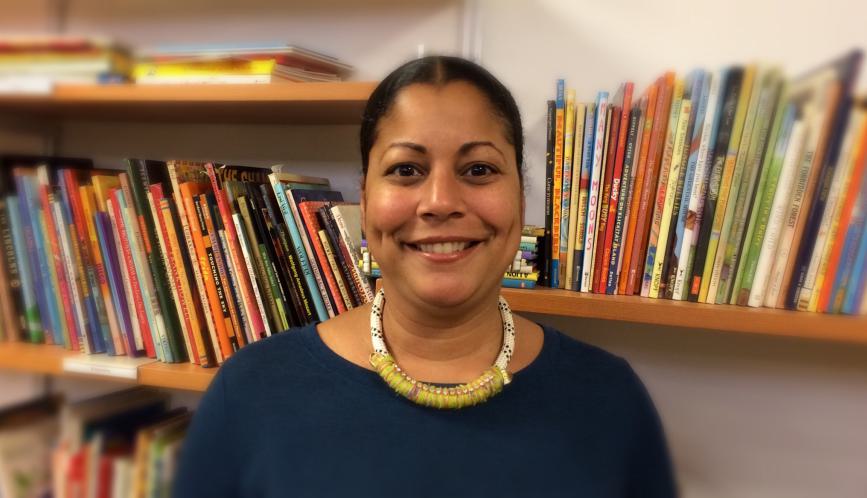Early Childhood Interventions network member Fabienne Doucet is an Associate Professor of Early Childhood Education at New York University and Program Leader in Childhood Education in the Department of Teaching and Learning at the NYU Steinhardt School of Culture, Education, and Human Development. She is also an affiliated faculty member of the NYU Metropolitan Center for Research on Equity and the Transformation of Schools, Institute for Human Development and Social Change, and Center for Latin American and Caribbean Studies. Doucet seeks to understand how structural factors, such as race, nationality, immigrant status, and socioeconomic status impact children's educational experiences.
Please describe your area of study and how it relates to current policy discussions surrounding inequality.
My program of research examines how immigrant and U.S.-born children of color and their families navigate education in the United States. Specifically, as a critical ethnographer, I study how taken-for-granted beliefs, practices, and values of the U.S. educational system position children and families who are linguistically, culturally, and socioeconomically diverse at a disadvantage. My two primary lines of inquiry--(1) family involvement in school, and (2) the children's educational experiences in the context of structural diversity and inequality--help me answer questions about how inequality gets produced and reproduced through educational practices and policies, and to propose solutions for interrupting the cycle.
What areas in the study of inequality are most in need of new research?
We need fresh perspectives on how intersecting dimensions of inequality (e.g., poverty, undocumented status, segregation) impact children's future prospects. It is also important that we add to the knowledge base of the role schools, classrooms, and teachers can play in reproducing or mitigating the impacts of inequality.
What advice do you have for emerging scholars in your field?
I encourage emerging scholars to be nimble and curious, to explore multidisciplinary and mixed-method collaborations, and to resist facile, deficit-based assumptions, questions, and approaches in the study of inequality.



